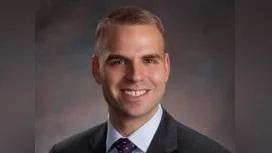Ryan McIntosh Nebraska State Director | NFIB Nebraska
Ryan McIntosh Nebraska State Director | NFIB Nebraska
The NFIB Small Business Optimism Index increased by 0.5 points in August, reaching 100.8, which is nearly three points above its long-term average of 98. Four out of ten components in the index rose, while four declined and two remained unchanged. The main driver for the increase was a higher share of business owners expecting real sales to rise. The Uncertainty Index dropped by four points to 93 but stayed above historical norms due to ongoing concerns about financing and planned capital expenditures.
“Optimism increased slightly in August with more owners reporting stronger sales expectations and improved earnings,” said NFIB Chief Economist Bill Dunkelberg. “While owners have cited an improvement in overall business health, labor quality remained the top issue on Main Street.”
Nebraska’s small businesses appear to be following this national trend. “Nebraska’s small businesses are the backbone of the state’s economy, and they are feeling the positive effects of the national optimism trend,” said NFIB Nebraska State Director Ryan McIntosh. “As a state with a higher proportion of small businesses with employees compared to the national average, we are well-positioned to drive job growth and investments.”
Survey results from August show that 14% of business owners rated their company’s health as excellent—an increase from July—and over half described it as good. However, labor quality continues to be a challenge: 21% identified it as their biggest problem, maintaining its position as the most significant concern among respondents.
Job openings remain difficult to fill for many employers; 32% reported having positions they could not staff in August—a figure that has not been lower since July 2020. In construction specifically, nearly half reported unfilled jobs despite some recent decline in openings compared to last year.
A net 12% expect higher real sales volumes going forward, up six points from July and representing the largest contribution to optimism gains this month. Inventory levels were also seen as improving slightly.
Other findings include historically low rates for borrowing (average rate paid on short maturity loans fell to 8.1%), fewer owners borrowing regularly than at any time since November 2021, and continued modest plans for job creation—though still below historic averages.
Compensation increases were noted by a net 29% of owners (up two points), while capital spending remains subdued even though more than half made outlays recently—mainly on equipment or vehicles.
Supply chain disruptions affected just over half of respondents but have lessened since July; only three percent reported significant impacts.
Inflation concerns persist: eleven percent named it their primary operational challenge for a third consecutive month, while taxes followed closely behind at seventeen percent.
Profit trends showed slight improvement but remain negative overall; weaker sales were most commonly blamed for declining profits among those reporting losses.
The data comes from NFIB’s monthly survey conducted among randomly selected members during August 2025; these surveys have been carried out quarterly since late 1973 and monthly since 1986.





 Alerts Sign-up
Alerts Sign-up